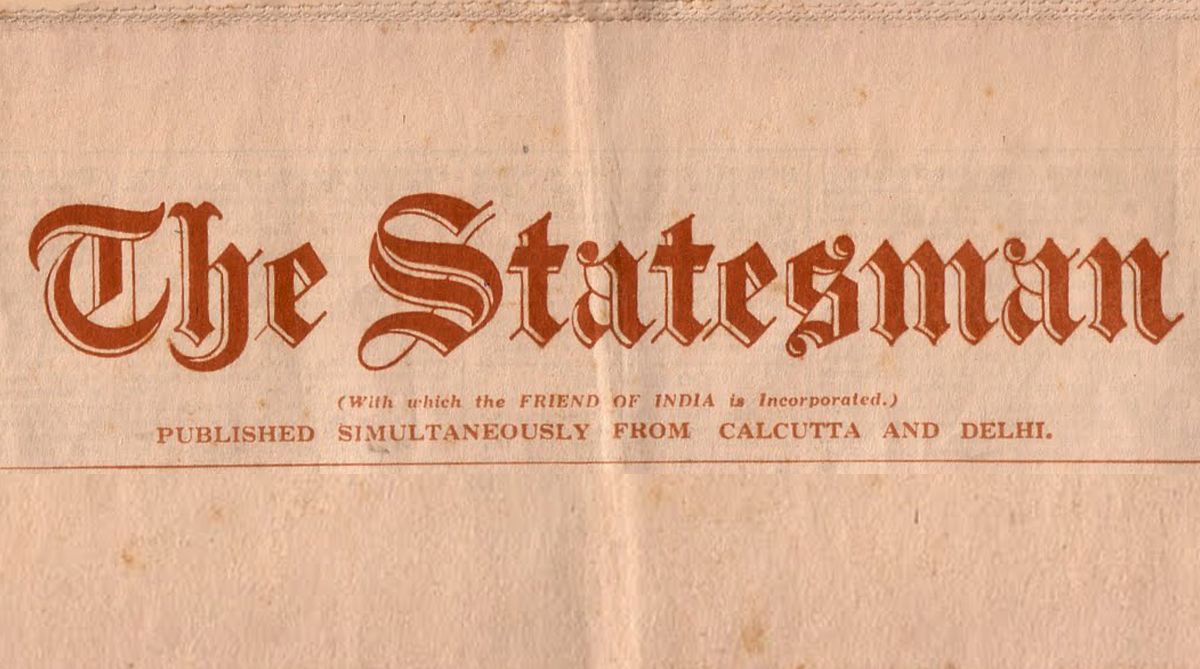A New Day, A New Dawn
There is a surprise for the readers. A special Poila Boishakh gift from none other than West Bengal chief minister Mamata Banerjee. Who has written a piece for this special edition.
On this day a century ago, these were some of the news items The Statesman readers got to read about India and the world.

OCCASIONAL NOTE
The statement which has been published in reference to salt supplies in India shows that the Government may be congratulated on the results of their action in this matter. The increase of Indian production is very satisfactory. In connection with this subject, it is curious to read in the late Major Jack’s newly published “Gazetteer” on Bakarganj that salt manufacture in former days had a demoralising influence, locally, on the people. One would think it hardly possible to imagine a more harmless occupation than the making of salt. But what does Major Jack say? Bakarganj was a large centre of salt manufacture, until the industry was given up. Certain districts were so largely given over to it that they became partially depopulated.
“Wherever there was manufacture of salt, there was great lawlessness and extreme tension between the salt manufacturers and the inhabitants, resulting in frequent quarrels between the magistrate of the district and the salt officers.” The salt department “had a great reputation for misconduct, and were alleged to use coercion of the most grievous kind in order to force advances upon the molunghies”; and Major Jack concluded that the manufacture of salt certainly retarded the development of the district, and that it was a good thing for the inhabitants when it was given up. This, however, is a story of long ago, and things are better managed today. We need not anticipate any such pernicious consequences from the local manufactures now being developed.
Advertisement
CO-OPERATIVE CONFERENCE
At the resumed sitting of the Co-operative Conference this morning the discussion on the question of the propriety of granting takavi loans to co-operative societies was continued. At any time, whether scarcity is prevalent or not, Local Governments should place at the disposal of the provincial or central banks or primary societies such proportion of the Budget allotment available for takavi loans under Act 12 of 1884 as it thinks fit. Mr. English moved that the Committee’s recommendation in regard to loans under the Land Improvement Loans Act should be accepted by the Conference.
This was agreed to. The question of having separate accounts for loans under the Agricultural Loans Act and the Land Improvement Loans Act was discussed at length. It recommends that an influential committee of bankers, business men and co-operative workers should be assembled on as early a date as the Government of India consider practicable to examine the question of financing the co-operative movement in all its bearings. The Conference adjourned till tomorrow.
THE DEVELOPMENT OF BURMA
Writing in the Bulletin of the Imperial Institute, Sir Harvey Adamson says that while Burma has fertile soil, never failing rainfall, abundant fisheries, magnificent forests and great mineral wealth, only rice, teak and mineral oil have hitherto attracted British capital on a large scale. This is due to the dearness of labour compared with continental India and inadequate communications. He advocates a more generous financial policy for the equipment of Burma with roads, railways and other public works, and emphasises the fact that private as well as public capital can be profitably employed in developing the resources of Burma. He adds that the Government is always ready to welcome bona fide applications for concessions.
SOME INTERESTING APPOINTMENTS
The report that Prince Max has been appointed Chancellor is generally accepted as correct. He has distinguished himself during the war by several liberal speeches. Other appointments mentioned are those of Herr Erzberger as Director of Propaganda, Herr Haas of the Liberal Berliner Tageblatt as Chief of the Press Department, and the Socialist Herr Legien as Labour Minster. It is significant that Count von Brockdorff-Rantzau, German minister in Copenhagen, whom the Lokalanzieger once called a defeatist, is mentioned as Foreign Secretary. It is pointed out that while these changes are made with the object of creating an appearance of democratisation the well-known powerlessness of the Reichstag remains. It transpires that the Suffrage Committee of the Upper House of the Prussian Diet, in adopting the suffrage measure, added a provision that every man over forty would have two votes.
Advertisement